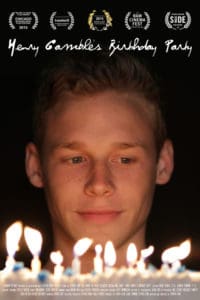
In 2017, I was a participant in a two-day Oriented to Love (OTL) dialogue. These dialogues bring together 12 committed Christians who represent a wide range of views on LGBTQ issues in the church. The views represented ranged from people affirming the traditional view (God’s will for sex is a man and a woman in life-long marriage) to those believing that a same-sex, life-long exclusive partnership is fully compatible with Christian faith.
OTL director Kristyn Komarnicki structures the workshop in a gentle way that invites everyone to share and listen and allows us to experience the deep feelings, painful experiences, and committed beliefs of everyone present. The workshop is not structured to argue for any specific view but rather to help everyone enter into, with genuine listening, the stories and thinking processes of committed Christians who arrive at clearly different conclusions.
Both love and truth are affirmed here. There is no pressure for anyone to change their mind except as one listens to our siblings in Christ. I did not change my view, but the workshop deepened my understanding of, and love for, other Christians who disagree with me. And it also helped me better understand how to work at the new, different evangelical approach which I call for in that chapter.
I think it would be beneficial for every Christian leader (especially every evangelical leader) to experience an OTL dialogue. (Kristyn offers four dialogues a year in various parts of the country, and she is training up additional facilitators so that the work can be more widely available.) The dialogue helped me think more clearly about the fact that I know, work with, and affirm the deep Christian faith of those siblings in Christ with whom I disagree quite strongly on a number of important issues. I think the Calvinist doctrine of double predestination is seriously wrong. I think Jesus meant to teach his disciples never to kill, and I therefore think the Just War tradition is a serious mistake. I disagree with Catholics on papal infallibility. None of those issues are minor. Nor is the current painful debate in the church about same-sex relationships.
But in every case, I have siblings in Christ who love Jesus as much as I do, and still disagree on these and other significant issues. I think it is very important to emphasize what we share in common: the triune nature of God; Jesus’ identity as true God and true man; Jesus’ life, death and resurrection are the only way to salvation; Jesus rose bodily from the grave; and the Bible is God’s special reliable revelation for all Christians. I want to major on that common ground. And I want to find more and better ways to affirm together that high common belief.
That does not mean that we simply ignore ongoing disagreements about important issues. Where we cannot find agreement on major disputes, we must acknowledge that and, at least in some cases, have different denominational structures that reflect those disagreements. But we must also continue to listen to the whole church (throughout history and globally today) as we keep trying to submit all our thinking to God’s fully reliable biblical revelation. And that means that I must continue to listen carefully to those who disagree with me.
An Oriented to Love dialogue is a marvelous place to continue that journey.
Dr. Ron Sider is the Founder and President Emeritus of Christians for Social Action. He is the Distinguished Professor of Theology, Holistic Ministry & Public Policy at Palmer Theological Seminary. Ron Sider is known worldwide for providing leadership to the movement of evangelicals who recognize not just the spiritual, but also the social and political implications, of a high view of Scripture. His book Rich Christians in an Age of Hunger was lauded by Christianity Today as being among the top 100 books in religion in the 20th century, and the seventh most influential book in the evangelical world in the last 50 years.


